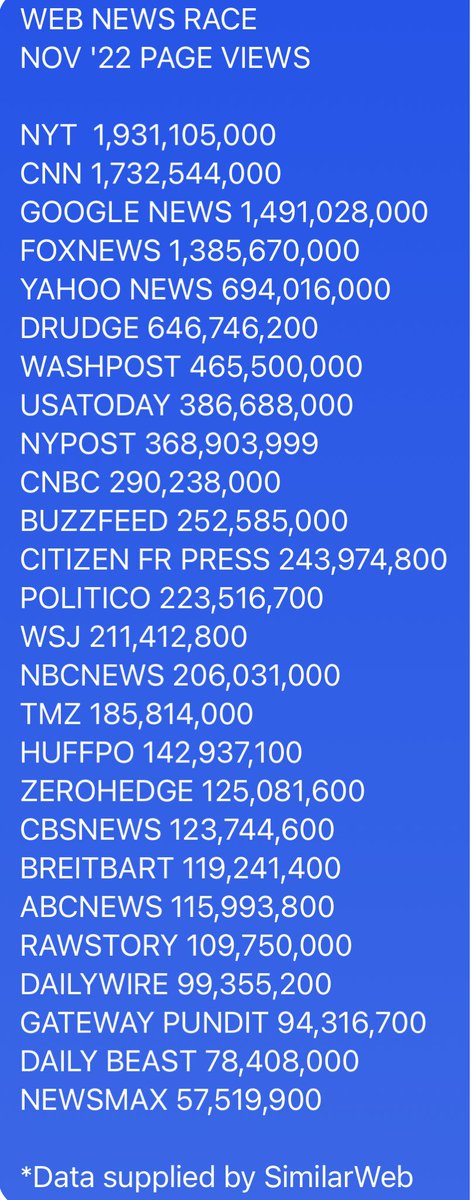“Ultimately, it’s about what it means to be an American and what it means to be an American in nature. To me, it’s not complete and it’s not right without jaguars.”--some ecologist
***
It would take years of evaluations, and environmental and diversity impact studies to get a stop sign on your street, the entire energy basis for the western world is being reversed without a hand vote.
***
What is the actual evidence that TikTok is serving up slanted, pro-Chinese content, or otherwise swaying public opinion in a negative manner?
***
The Index
The Index Librorum Prohibitorum, (“Index of Forbidden Books”) was a list of books once forbidden by Roman Catholic Church authority as dangerous to the faith or morals of Roman Catholics. Publication of the list ceased in 1966.
Penalties varied from venial sin to ex-communication for reading or possessing a banned writing.
Books were a source of concern as early as the scriptural account of the burning of superstitious books at Ephesus by the new converts of St. Paul (Acts 19:19). The decree of Pope Gelasius I about 496, which contained lists of recommended as well as banned books, has been described as the first Roman Index.
The first Index Librorum Prohibitorum was published in 1559 by the Sacred Congregation of the Roman Inquisition (a precursor to the Congregation for the Doctrine of the Faith) in an attempt to combat the spread of some of the writings of the Protestant Reformation.
The Index continued to have official sanction well into the 20th century. The last and 20th edition of the Index appeared in 1948. The list was suppressed in June 1966, when it became a moral guide instead of obligatory law.
The Index was not limited to theology: it banned works ranging from love stories to philosophical treatises to political theory. All the writings of certain authors—including David Hume, Thomas Hobbes, Émile Zola, and Jean-Paul Sartre—were prohibited, while only specific books by other authors were proscribed, such as John Milton’s Paradise Lost and Blaise Pascal’s Pensées. One or more works by nearly every modern Western philosopher were censored in the Index, even those who professed a belief in God, such as Erasmus, René Descartes, Immanuel Kant, George Berkeley, and Nicolas Malebranche. Other famous writers with banned books included Voltaire, Edward Gibbon, Montesquieu, Giordano Bruno, Francis Bacon, Laurence Sterne, Daniel Defoe, Nicolaus Copernicus, and Níkos Kazantzákis. That the works of some atheist thinkers, notably Friedrich Nietzsche and Arthur Schopenhauer, were not listed was because of the supplemental Tridentine ban on heretical works.
Hierarchies always try to manage information, to protect themselves or their citizens from themselves. It implies tremendous fear or arrogance. And is a great complement to the written word. Or a slur on the average citizen who will not be allowed to read and make decisions. The original fear that encouraged the Index was the democratization of dogma and translations. (The Quran should not be translated from Arabic because human opinion would be introduced.)
Our new censors would direct us.
We have fussed over writings in libraries and schoolbooks. But our current direction has gone beyond the pale. Stanford's list of banned words is worth the read for humor but it is a cautionary read if it is a thermometer of our times. Our language is to be sculpted, as we are.
Here is the current Stanford list:
https://s.wsj.net/public/resources/documents/stanfordlanguage.pdf
"While I’m all in favor of avoiding the use of genuinely offensive terms, Stanford’s list assumes extreme fragility on behalf of pretty much everyone. I find this assumption insulting, but perhaps I’m not adequately representative of, or in touch with, public opinion."--de Rugy
(some from Cath. Enc. and Enc. Brit.)



